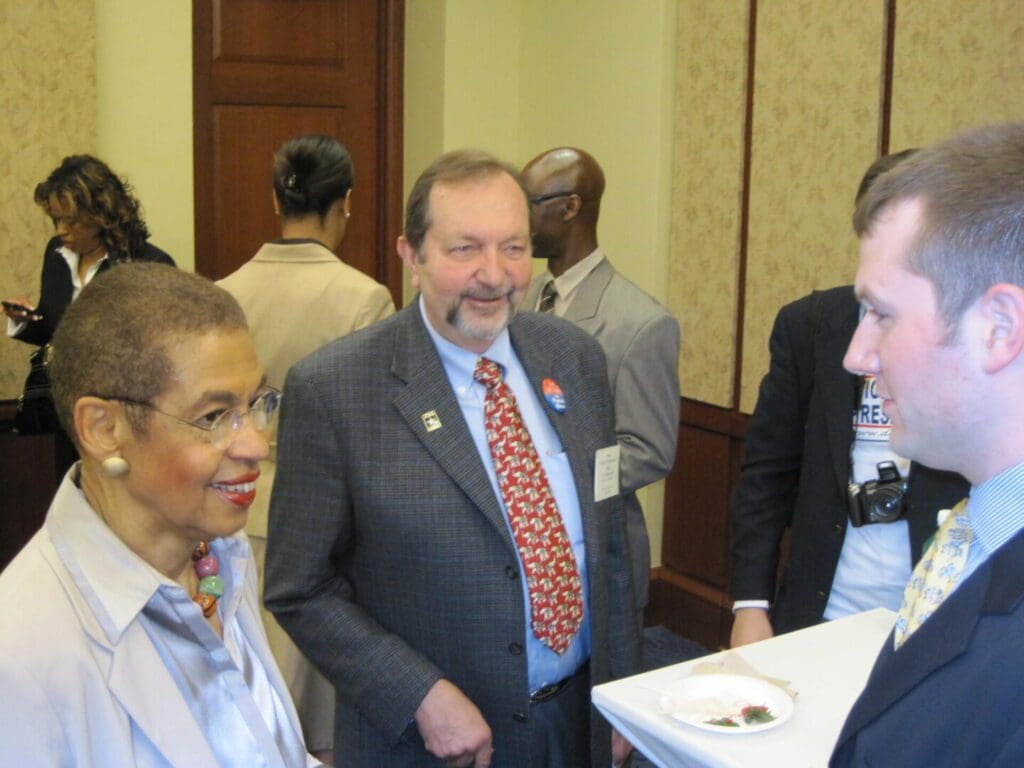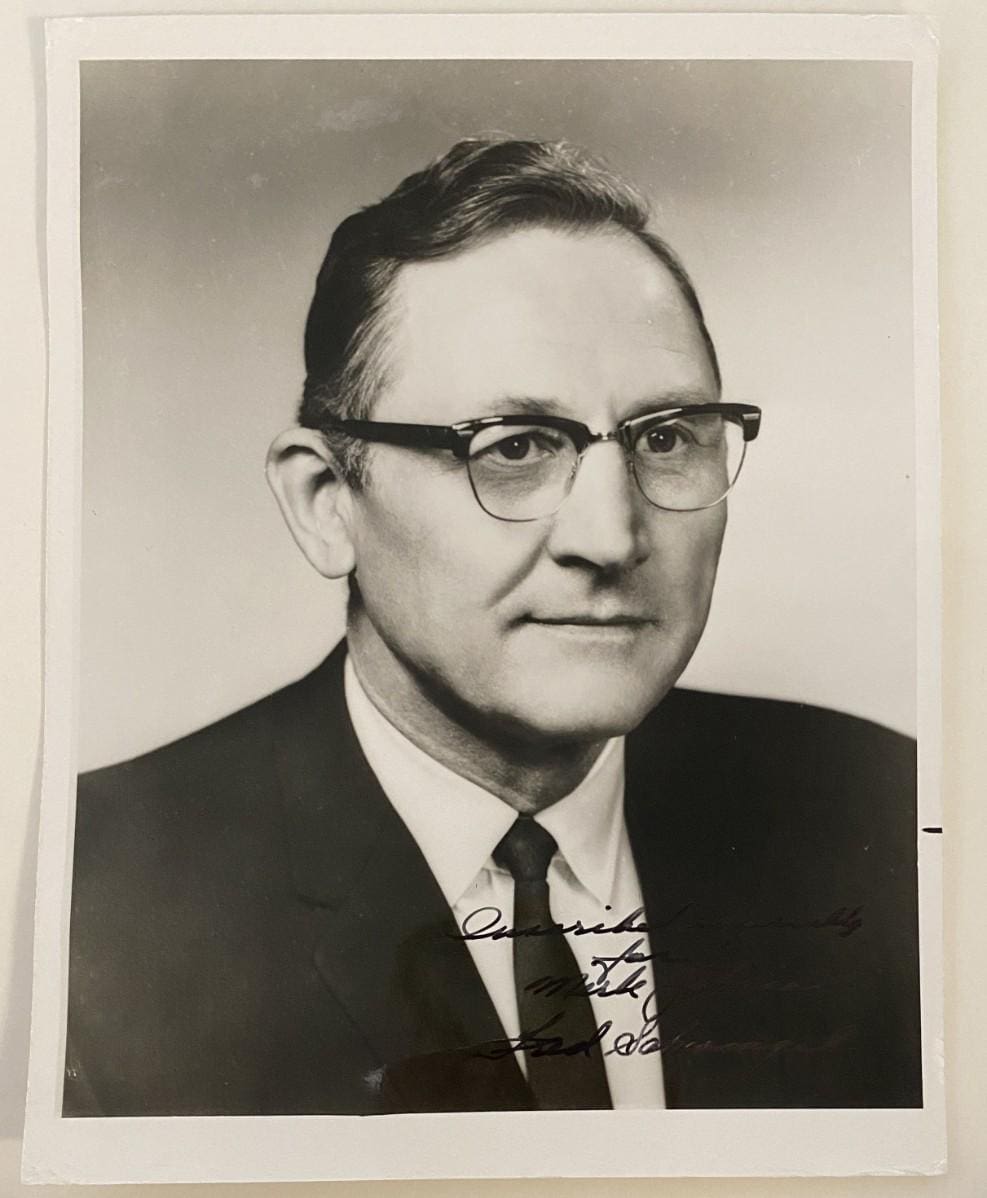
The First Statehood Bill was Introduced by a Republican!

Today few are aware that the first D. C. statehood bill was introduced in 1971 by a Republican Congressman, Fred Schwengel of Iowa. At the time, I was newly employed as a staff member of the Congressional Research Service at the Library of Congress. One of my early memorable assignments there was a request from Congressman Schwengel to conduct research on the issue of statehood for the District and to draft a supporting statement for the Congressional Record in conjunction with the planned introduction by him of statehood legislation. I was given a three-day deadline (later extended to five days) to complete this assignment. I remember the effort required as intense, but the research and draft statement were personally delivered to Schwengel’s office on schedule. Two days later, on June 16, 1971, the text of the statehood bill, H.R. 9197, along with the statement I had written, appeared in the Congressional Record.
Schwengel, throughout a 16-year career in the U. S. House of Representatives, was a fervent supporter of D. C. voting rights and home rule legislation. Before election to Congress in 1954, Schwengel had been a member of the Iowa House of Representatives after serving many years as a public high school history teacher. He was a lifelong member of various Lincoln study groups.
Shortly after introducing his statehood bill, Schwengel delivered an address at the Columbia Historical Society (since renamed the Historical Society of Washington, DC and now known as The Washington History Center, located in the old Carnegie Library downtown). Following his talk, I had the opportunity to ask Schwengel about his bill. I reminded him that he had previously held that representation could only be achieved by amending the U. S. Constitution to treat the District as if it were a state for purposes of electing voting members of Congress.
In reply, Schwengel noted that he had voted in 1960 for a resolution that was successfully adopted as the 23rd Amendment to the Constitution, treating the District as a state for purposes of representation in the Electoral College and thus giving D.C. residents the vote in presidential elections. The amendment as originally proposed by President Eisenhower would also have treated the District as a state for purposes of voting representation in the U. S. House of Representatives. Schwengel expressed disappointment that the provision for voting representation in the House, although supported by most Republicans, was not able to withstand the opposition of powerful southern Democrats and was deleted from the final version submitted to the States for ratification.